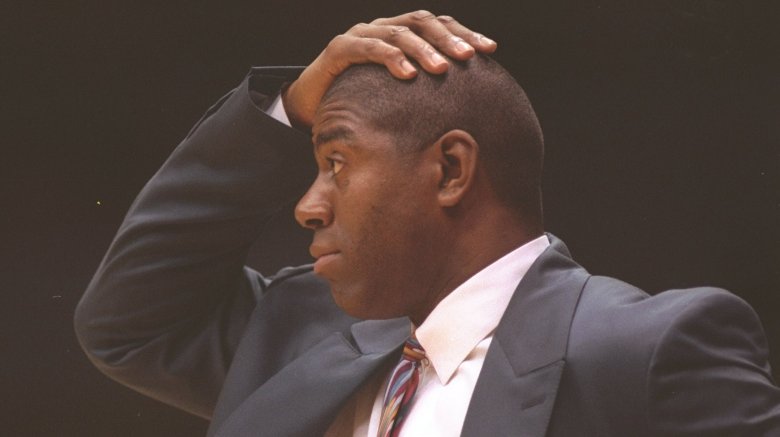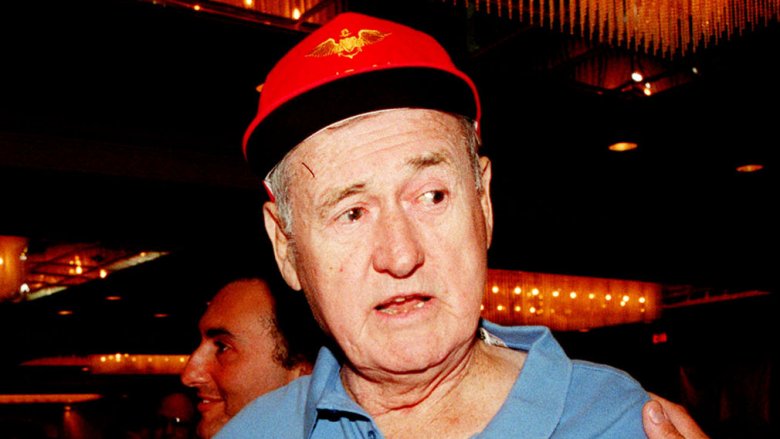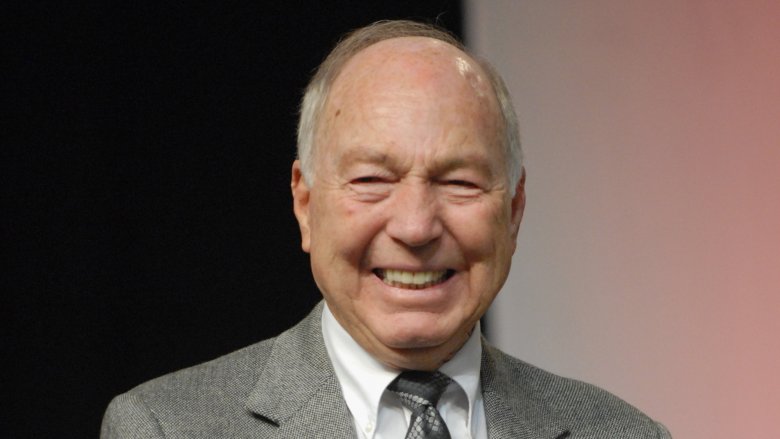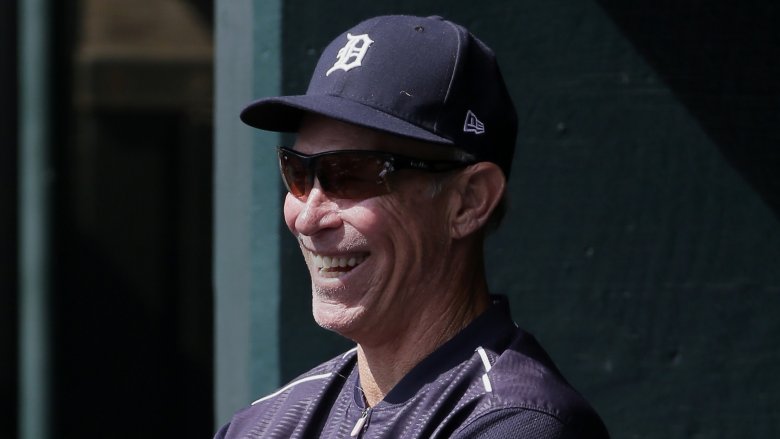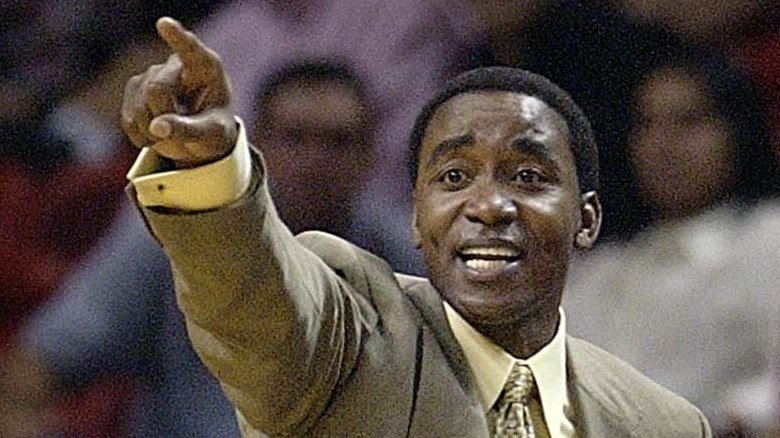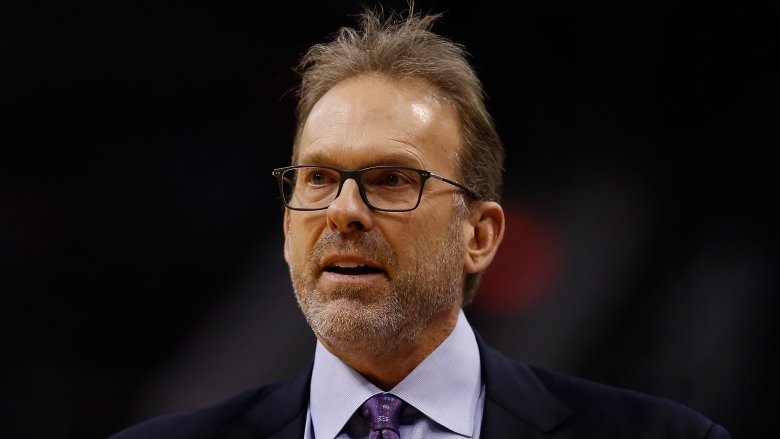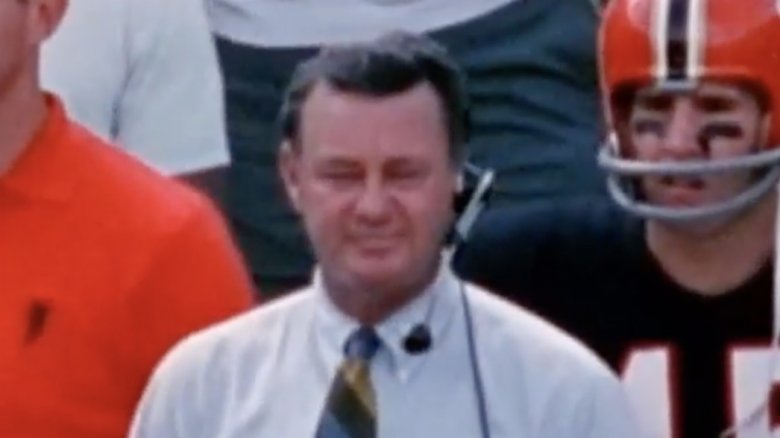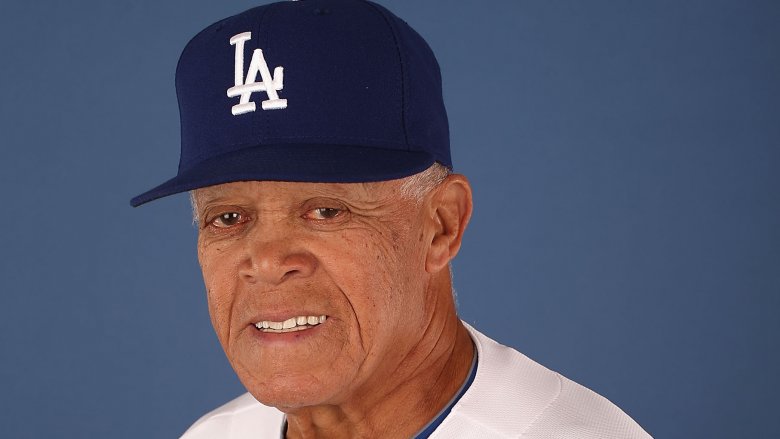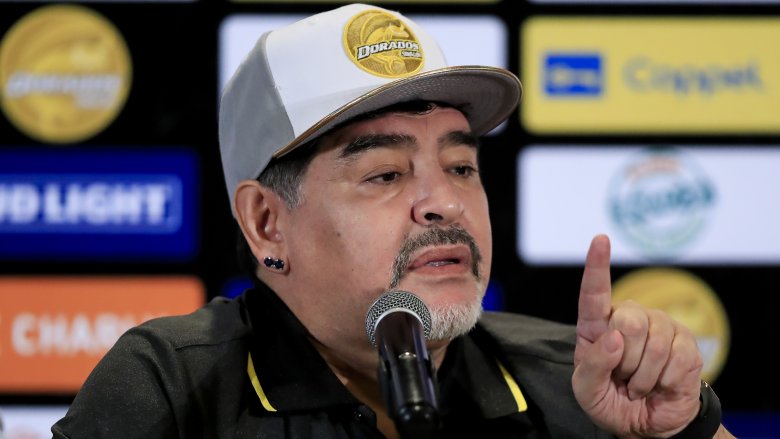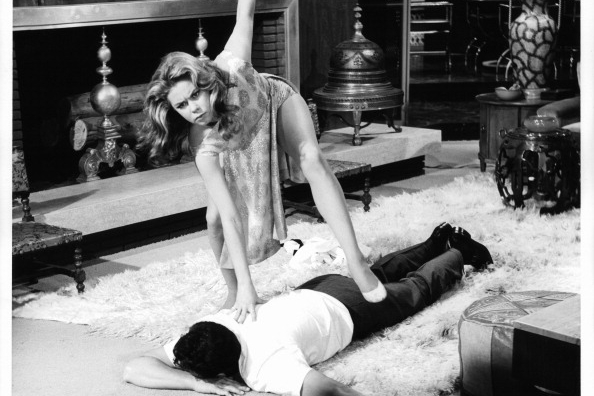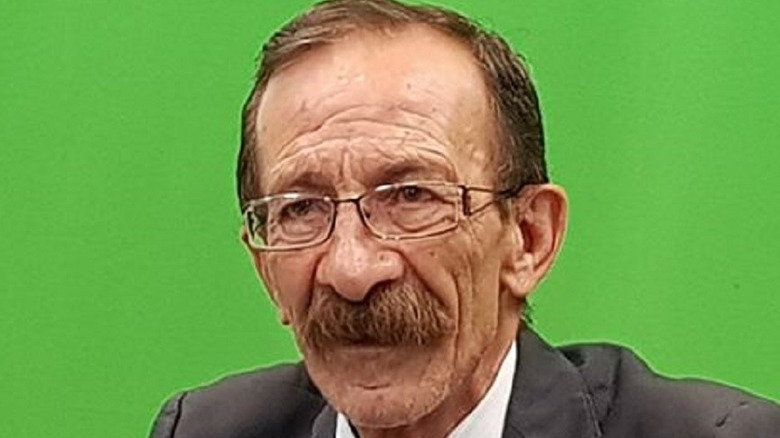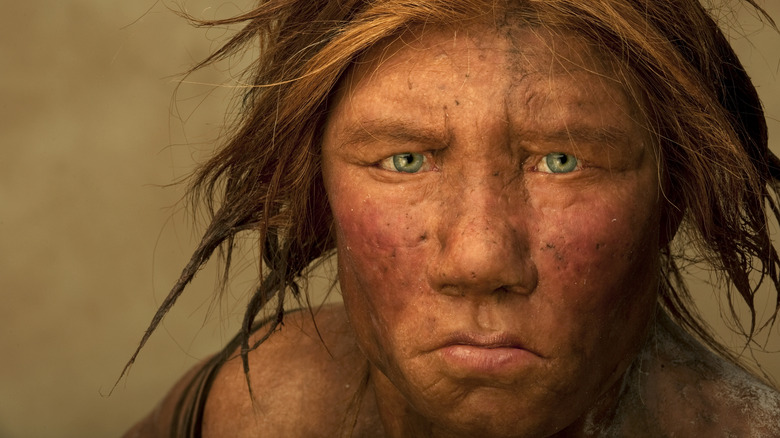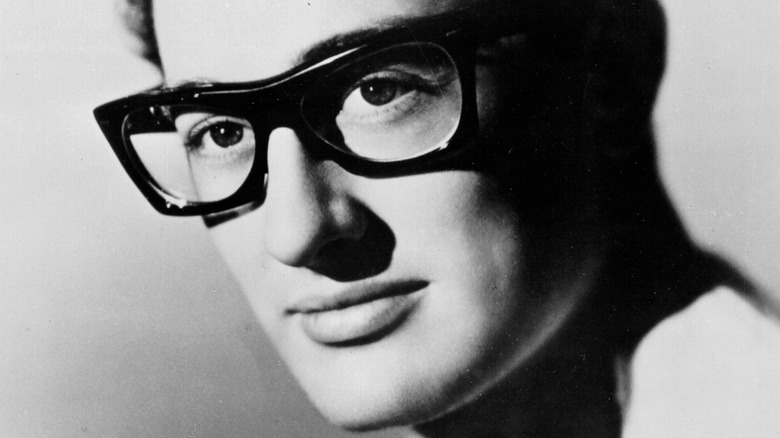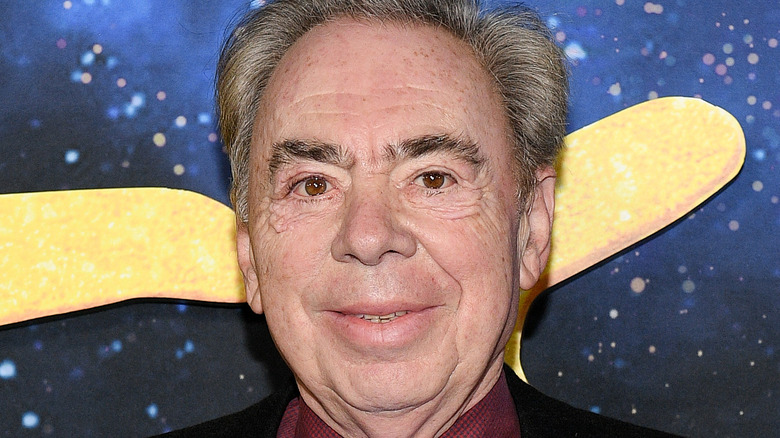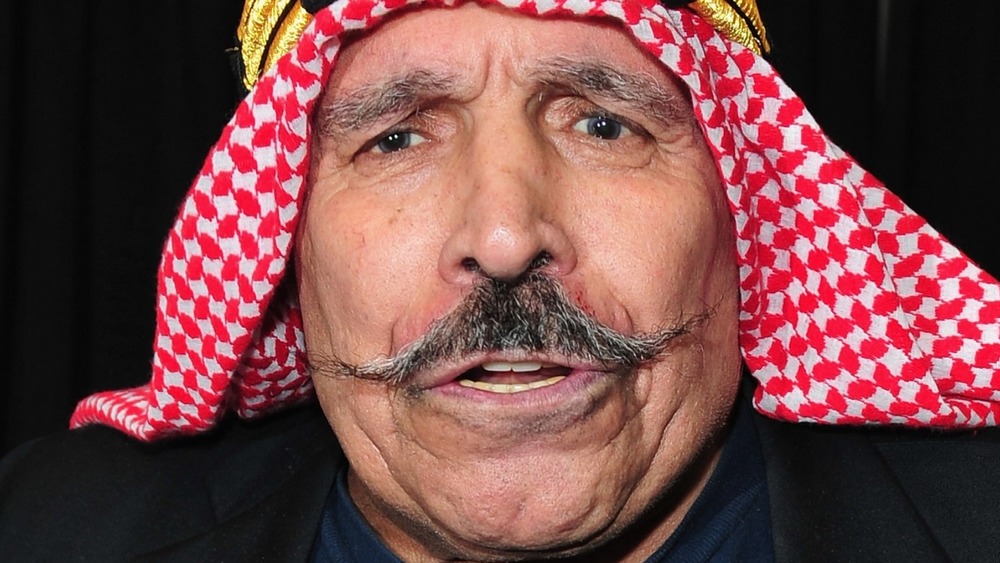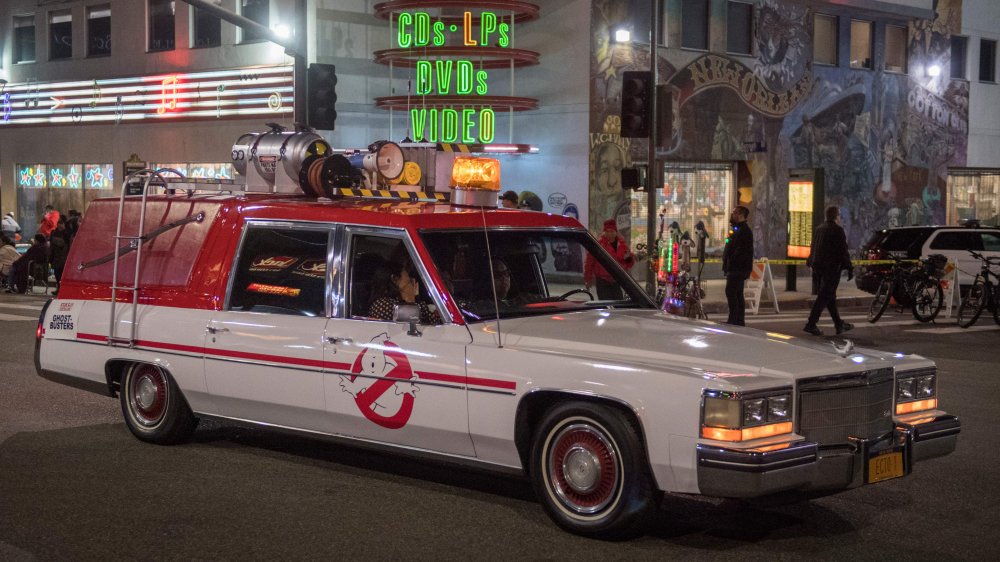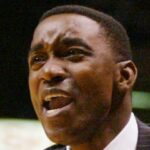
Awesome Athletes Who Were Bad Coaches
What does it take to be a coach? Among other things, it requires a knack for leadership, a brilliant mind for the game or sport in question, and the communication skills to let one’s players know what they need to do and what’s expected of them. What does it take to be a coach at the highest professional level of a sport? All of those things, plus the ability to handle the king-size egos of professional athletes and being fine with the pressure of bearing a franchise’s livelihood on one’s shoulders.
In other words, coaching isn’t for everyone. However, it’s logical to think that athletes who played a certain sport would naturally make excellent coaches at that very sport. Who knows the ins and outs of basketball better than a person who excelled at basketball? As it turns out, those who do, can’t always teach. Here are some legendary athletes who couldn’t cut it on the sidelines.
Magic can't fix everything
Probably one of the top three point guards to ever play basketball, Earvin “Magic” Johnson’s smooth commanding of the court during the Los Angeles Lakers’ “Showtime” era and his long-standing rivalry with the Boston Celtics’ Larry Bird elevated the game. Along the way, he won five NBA championships with an average of 19.5 points and 12.3 assists per game over his 13-season career, cut dramatically short due to his HIV-positive status.
Johnson is also one of the most successful retired athletes of all time, with a business empire that has included more than 100 Starbucks locations, some Burger Kings, a movie theater chain, and an investment firm. In 2017, he was named the Lakers’ president of basketball operations, and it was from that position that he won his team the LeBron James sweepstakes, landing a deal to bring the superstar to the West Coast. Really, there are only two areas where Magic Johnson has faltered: television (his talk show, The Magic Hour, lasted just two months) and coaching. As the 1993-94 season wound down, the Lakers boasted a record so bad that it would be the first time since 1976 that the team would miss the playoffs. After coach Randy Pfund got the axe, Jerry Buss urged Johnson to put on a suit and work the sidelines. Johnson did it, and guided the Lakers to 5 wins … and 11 losses. He wasn’t the head coach anymore when the 1994-95 season began.
The not-so-Great One
Wayne Gretzky was such a fantastic hockey player that even people who don’t know anything about hockey know who Wayne Gretzky is. He was so great that his nickname is, simply and effectively, “The Great One.” Gretzky began his storied, mind-bogglingly successful NHL career in 1979 and would hoist the Stanley Cup four times for his Edmonton Oilers. Gretzky also claimed the Hart Memorial Trophy (the NHL’s MVP award) nine times, and the Art Ross Trophy (awarded to the player with the most goals and assists) 10 times. By the time Gretzky retired in 1999, he’d scored 2,857 points, number one on the all-time list, and it’s not even close — no other player has ever topped 2,000.
Surely, Gretzky has one of the greatest hockey minds of any human to ever tie on skates and grow their hair long in the back. And yet, that did not translate to success as an NHL head coach. His record? Middling. He coached the Phoenix Coyotes from 2005 to 2009. In those four seasons, Gretzky’s squads never reached the NHL playoffs (which accommodate a whopping 16 teams, more than half the league), amassing a combined record of 143 wins, 161 losses, and 24 ties.
From Splendid Splinter to Malodorous Manager
An all-around star, Red Sox great Ted Williams could hit the long ball (521 career home runs), get on base (2,654 hits), and help his teammates score (1,839 runs batted in). “The Splendid Splinter” is best remembered today for two things: becoming the last guy to hit .400 during the regular season (.406 in 1941) and how his severed head was frozen after his death in 2002. While that’s certainly odd, it at least distracts from some of the less savory aspects of Williams’ life and career, particularly his woeful stint as a Major League Baseball manager.
About a decade into his retirement, Williams signed on to manage the second iteration of the Washington Senators, a perpetually bad team that hadn’t finished higher than sixth place in the American League since the team began play in 1961. Initially, it looked like Williams had the magic touch — his Senators grabbed the new franchise its first winning record (86-76), good enough for a fourth-place finish in 1969. Then Williams started to stink up RFK Stadium. Each season, the Senators finished worse than they did the year before, going from 86 wins to 70 to 63. In 1972, the Senators moved to the Dallas area and became the Texas Rangers, which would’ve been a fine chance to leave Williams behind. But the legend made the move with the team, and coached it to a 54-100 record … after which he was finally let go.
A fading Starr
Bart Starr could probably dine out for free anywhere in Green Bay for the rest of his life. The quarterback is still a revered figure nearly 50 years after his playing days ended, a period in which he thrilled the football-crazed city with five NFL championships and victories in Super Bowls I and II. Starr was the MVP of both of those “big games,” just more accolades in a career that also includes the highest postseason passer rating in NFL history (104.8), four Pro Bowl selections, and enshrinement in the Pro Football Hall of Fame.
Hopefully, nobody in Green Bay remembers Starr’s coaching days After retiring in 1971, Starr returned to the icy tundra of Lambeau Field in 1975 as the Packers’ head coach. Let’s just say he was no Vince Lombardi. Starr plodded along as the Packers’ coach for eight long, almost completely fruitless seasons. During that time, the team made the playoffs once (1982, losing in the second round) on the way to a total win-loss record of 52-76-3. At least Starr has some self-awareness about it all. In 2013, he called his decision to coach his “greatest mistake.”
The guy who made the Detroit Tigers look like the Detroit Lions
While not a flashy, highly memorable player of the ’80s and ’90s — he certainly wasn’t Springfield Nuclear Power Plant-level like Ken Griffey Jr. or Darryl Strawberry — Alan Trammell’s workman-like approach to the game resulted in more than 2,300 hits, a career .285 average, six All-Star selections, four Gold Gloves, and three Silver Slugger awards. When his Detroit Tigers won it all in 1984, Trammell was named World Series MVP.
The Hall of Famer spent his entire 20-year career with the Tigers, so it was a nice homecoming when the team hired him to be its new manager in 2003. As he’d once helped make history for the Tigers, Trammell did it again, but not in a good way, managing the squad to a 43-119 record. That wasn’t just the worst finish in baseball that year, it was the worst finish by any team since the 1962 New York Mets went 40-120. Amazingly, and perhaps because of deep-seated local affection, the Tigers didn’t fire Trammell. In 2004, his team went 72-90, a dramatic improvement (of course, the only way was up), and in 2005, Trammell’s Tigers finished 71-91, earning Trammell a pink slip.
From 'Bad Boy' to bad coach
In the late ’80s, the one team that could consistently beat the Los Angeles Lakers was the Detroit Pistons, with its aggressive style of play from its “Bad Boy” players, such as center Bill Laimbeer and point guard Isiah Thomas. With career stats like a 19.2 points per game average, it’s no surprise that Thomas’ Pistons captured two NBA titles in 1989 and 1990.
It would seem that the only basketball-related thing that Isiah Thomas is good at is actually playing basketball. In 1999, he purchased the minor-league Continental Basketball Association for $9 million; two years later the CBA went out of business. Fresh off an NBA Finals appearance in 2000, the Indiana Pacers hired Thomas to be its head coach after local boy Larry Bird resigned. Thomas’ Pacers didn’t come close to the Finals, finishing barely above .500 in three straight campaigns that all ended in elimination in the first-round of the playoffs.
In 2003, he joined the New York Knicks as general manager. Within three years, the team went from a playoff-worthy 39-43 to 23-59, second-worst in the league … and with the burden of the NBA’s highest payroll. Nevertheless, the Knicks then gave Thomas more power, naming him head coach. His records in the 2006-07 and 2007-08 seasons? A paltry 33-49 and 23-59, respectively.
Not to be Kurt, but dude was a bad head coach
The Los Angeles Lakers didn’t go to the NBA Finals almost every year in the 1980s on the strength of Magic Johnson and Kareem Abdul-Jabbar alone. In addition to those showy “Showtime” stars, solid role players got it done, such as Kurt Rambis, a Lakers power forward from 1981 to 1988. While highly recognizable for wearing regular, thick-rimmed glasses during play, Rambis was always more of a “help out” guy than a ball hog.
Rambis did pretty well for himself as an assistant coach. The Lakers employed him in that capacity from 1996 to 2009, during which time they claimed four championship rings. At the end of the lockout-shortened 1998-99 season, Rambis briefly served as interim head coach, racking up a respectable 24-13 record and a playoff appearance, where the Lakers were knocked out in the second round by the San Antonio Spurs. A decade later, Rambis took another head coaching job with the Minnesota Timberwolves. Rambis’ records over two seasons (2009-2011) were an abysmal 15-67 and 17-65. After a period as an “associate head coach” with the New York Knicks, he was named interim head coach in 2015 and earned the team 9 wins and 19 losses. After that, he went back to sitting farther down the bench.
An ab-Norm-al coaching record
Back in those scrappy days of pre-blockbuster pro football, when the NFL was just one of two competing leagues, quarterback Norm “The Dutchman” Van Brocklin led the league in passing three times and was also a talented punter. In 1951, he led the Los Angeles Rams to their first NFL championship (there wasn’t a Super Bowl yet), the same season he passed for 554 yards in a single game, which is still a record. That’s just one highlight from a career in which he was a nine-time Pro Bowl selection.
In 1961, a year after his retirement, Van Brocklin signed on as the first ever coach of the Minnesota Vikings. Now, expansion teams are generally bad, and Van Brocklin’s teams were no exception. Despite having the legendary Fran Tarkenton at quarterback for his entire six-year term in the Twin Cities, Van Brocklin put up terrible win-loss records like 3-11 and 2-11-1 (with the occasional 8-5-1 and 7-7 in there, too). After his resignation in 1966, the Atlanta Falcons hired him on in the middle of the 1968 season for some reason. While he did help the team acquire its first winning season (7-6-1 in 1971), his overall record stood at 37-49-3. After a 2-6 start in 1974, the Falcons let go of Van Brocklin.
Where there's a Wills, there's no way
Maury Wills is one of those guys whose career puts him almost in Hall of Fame-worthy territory: a lifetime .281 hitter with more than 2,100 hits, a consistent All-Star selection, and the 1962 National League MVP. The guy could really hit, leading the National League in singles four times, and triples once.
Wills was also foolhardy, which must be why he decided to manage the woeful Seattle Mariners during their early years lost in the wilderness of the American League. In its first three seasons since coming into the league as an expansion team in 1977, Seattle put up a combined record of 187-297, a winning percentage of just .386. The 1980 season was going almost as badly. After manager Darrell Johnson led the team to a not-stellar 39-65, the front office fired him midway through the year and replaced him with Wills, who management hoped could turn the team around with some of his in-the-trenches knowledge. That’s not what happened. As a caretaker in 1980, Wills led the Mariners to 20 wins and 38 losses. Apparently without any prospects, the team kept Wills on into the 1981 season where he barely lasted a month before termination, compiling a 6-18 record. Wills never coached another MLB team.
The Golden Boy loses his luster
Who’s the greatest soccer player of all time … besides Pelé? Maybe Diego Maradona, co-player of the 20th century according to FIFA (alongside Pelé). The Argentinian midfielder and striker played for his national team in four World Cups, winning the tournament in 1986. Maradona was named the MVP of that World Cup series, largely thanks to a bewildering play from a semifinal match against England — El Pibe de Oro (“The Golden Boy”) dribbled the ball 60 yards downfield past five opponents and scored. He followed that up with a pro career, playing for teams all over the world, including Italy’s Napoli, where he contributed to the club’s only two league titles.
Apparently the soccer genius inside Maradona’s brain circulates to his feet and not to his mouth, because the man did not a good soccer coach make. As coach of the Argentina national side for the 2010 World Cup, Maradona’s team was eliminated in a 4-0 quarterfinal blowout by Germany. That’s got to be his crowning “achievement” as a coach because when he coached Argentina teams Deportivo Mandiyu and Racing Club, the teams amassed three wins out of 23 matches. In 2018, a job coaching Al Fujairah in the United Arab Emirates soured — he left the squad after failing to get the team its promotion to a higher tier.
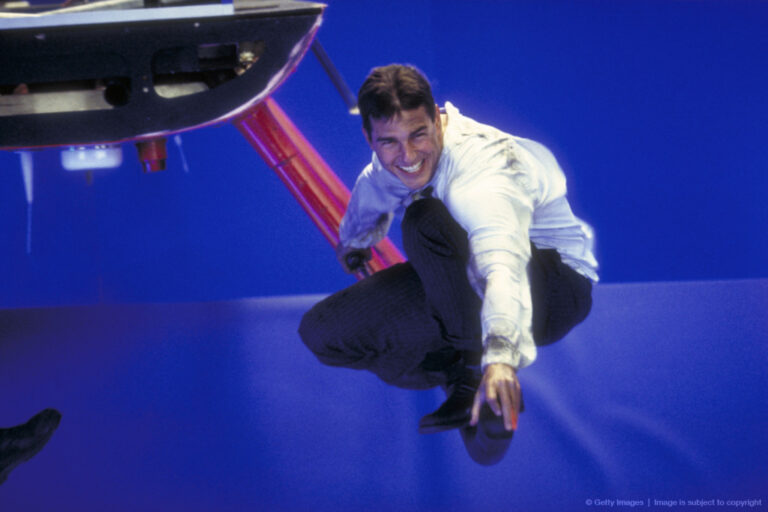
Doing Their Own Stunts – Actors and Actresses Who Have Put it all on the Line
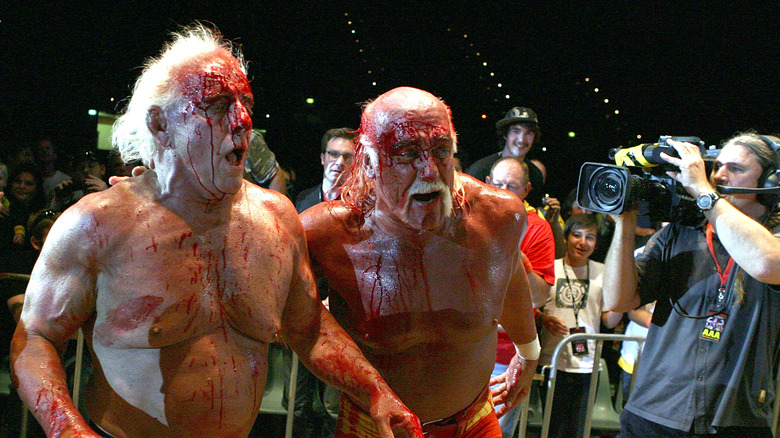
The Truth About Ric Flair And Hulk Hogan's Feud
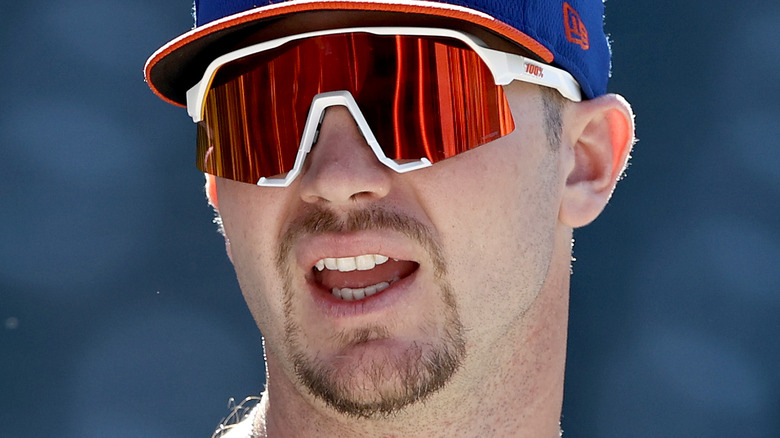
The Untold Truth Of Pete Alonso, Two Time Home Run Derby Champ
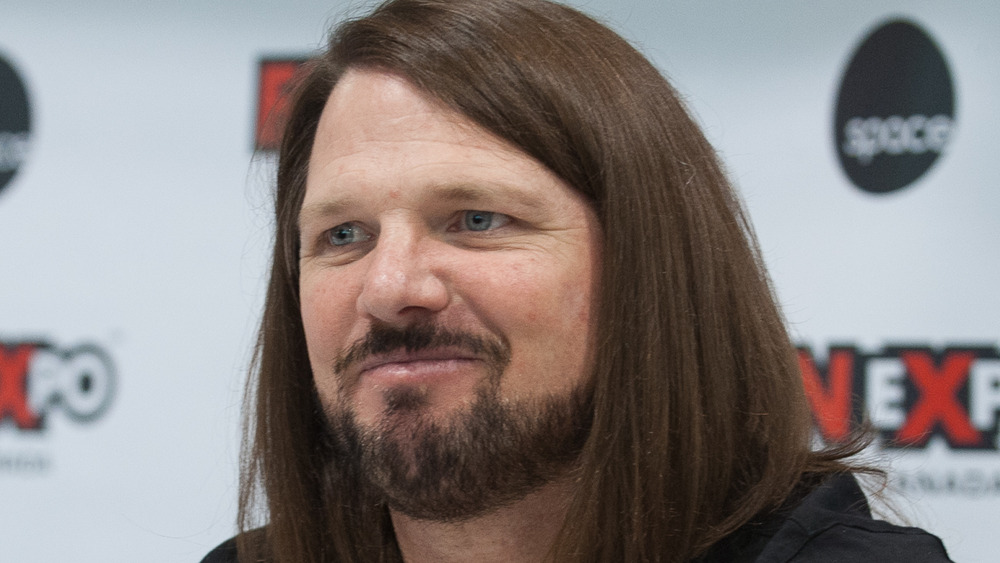
How Much Is AJ Styles Worth?
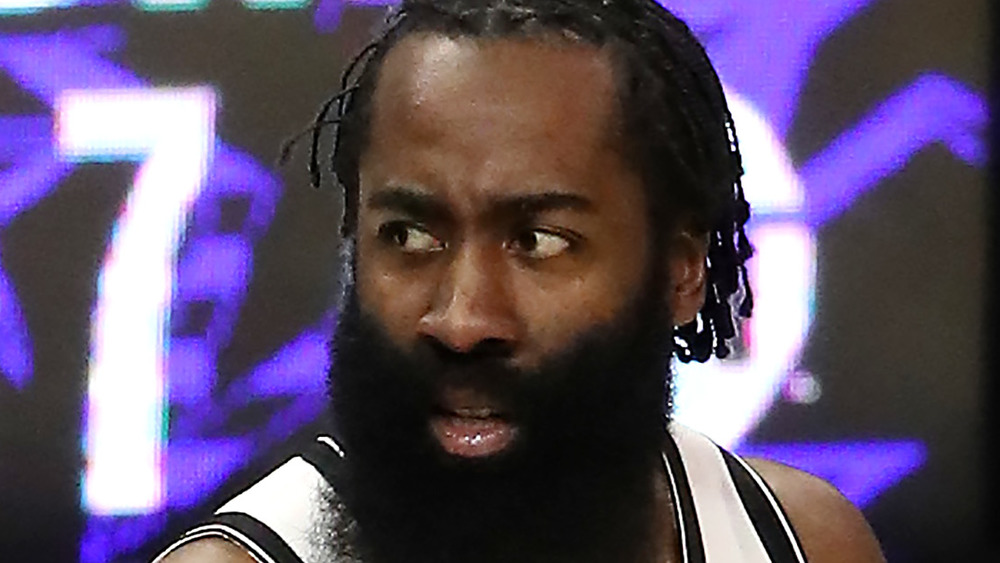
James Harden Is Worth A Lot More Money Than You Think
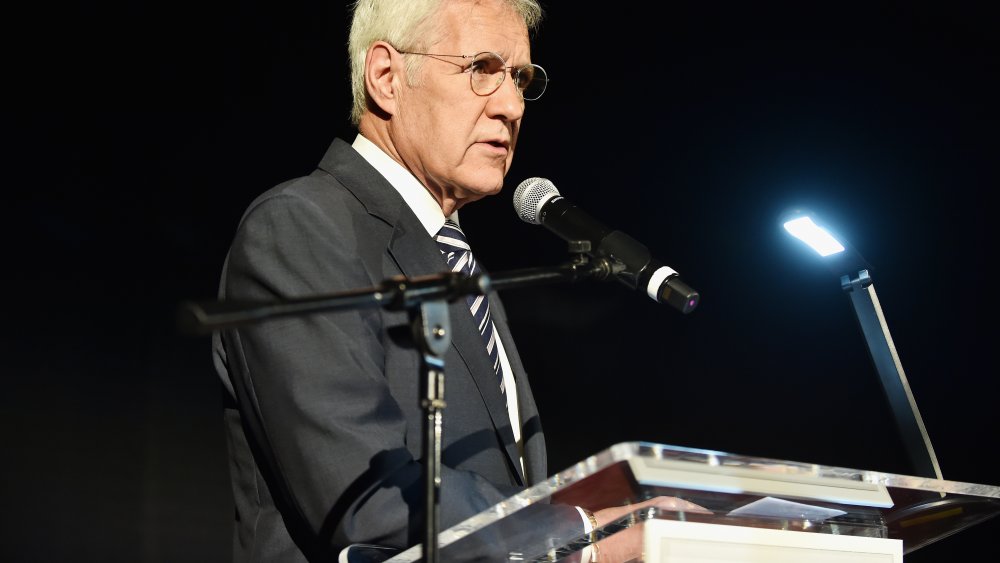
The Truth About Alex Trebek's Wrestlemania Appearance
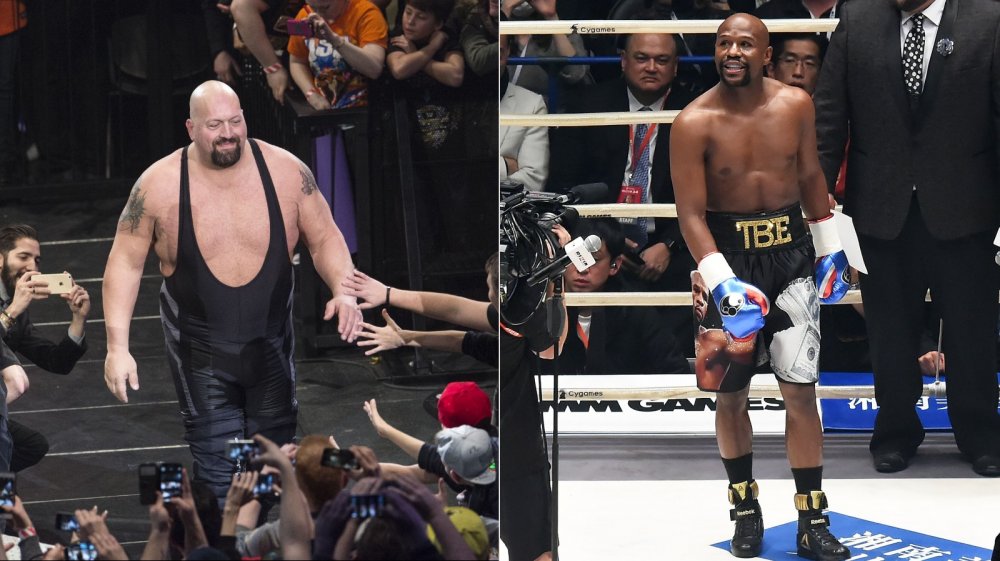
The Truth About Big Show's Fight With Floyd Mayweather
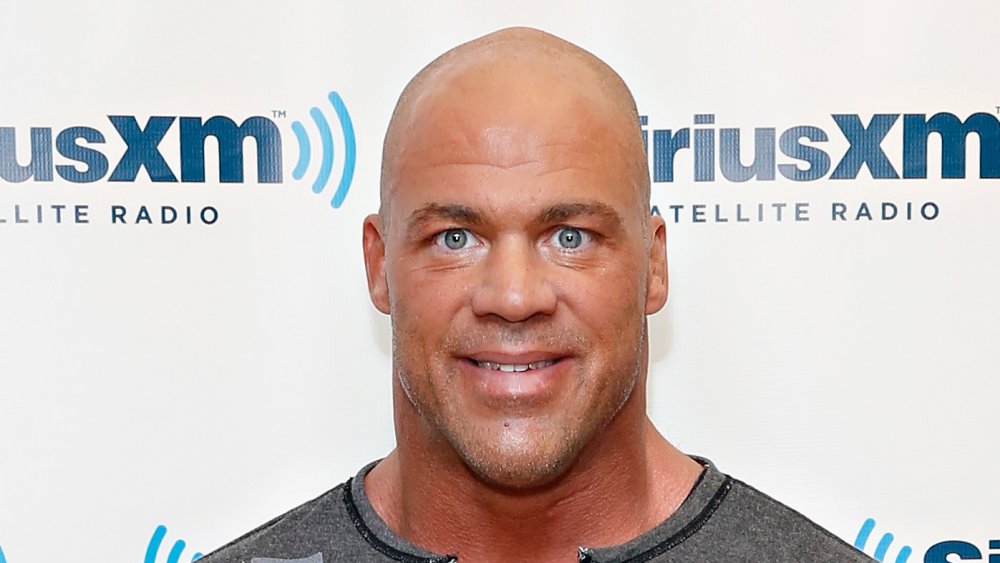
The Childhood Tragedy That Made Kurt Angle Who He Is
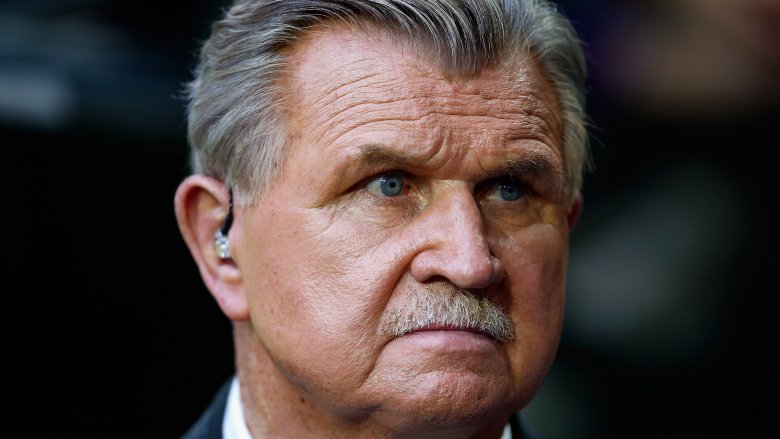
What The '85 Bears Look Like Now

Emergency Replacements Who Saved The Day
